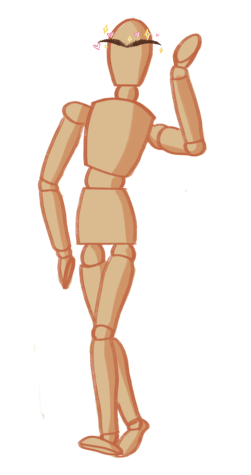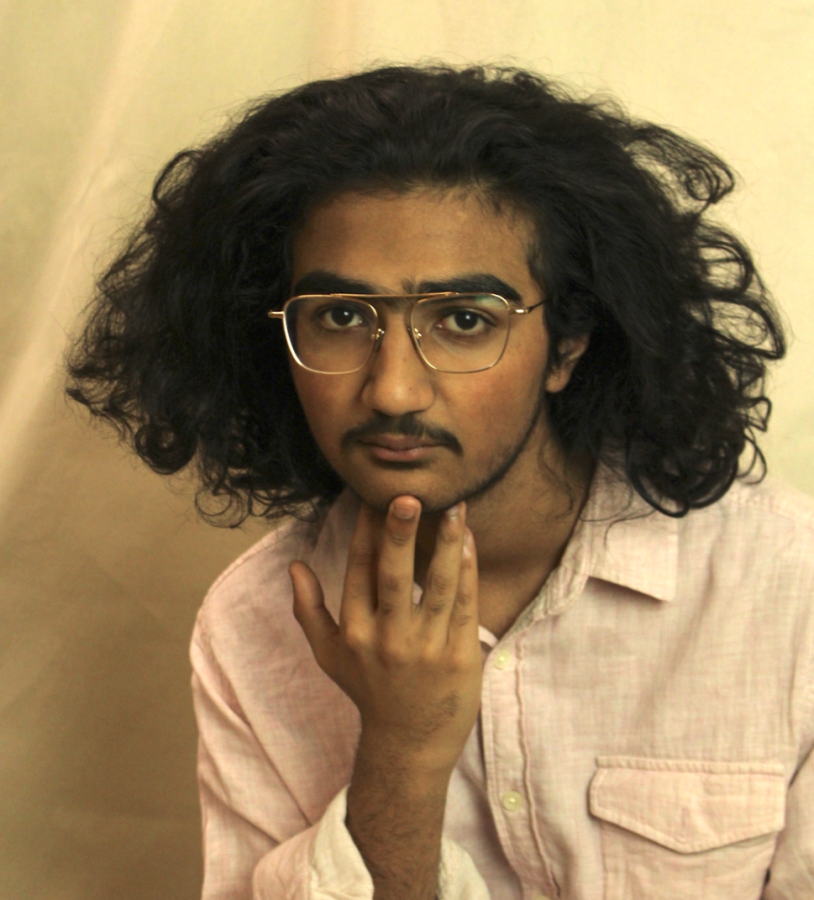UNIBROW: Faizan Kashmiri, Paly sophomore and author of this piece, poses for a photo. He has had a unibrow all his life and does not shave it as a form of self-expression. He hopes to reduce the stigma around unibrows and help those with unibrows accept them.
More than meets the eyebrow
What my unibrow means to me
When I wake up in the morning, brush my teeth, and stare into the mirror to check on a concerning pimple, I’m always met with the reflection of a little patch of hair between my eyebrows. When I shave it, one might find a few pieces of hair in the sink, trivial compared to the near Afro-worthy hair on the top of my head. But to me, my unibrow remains my little hirsute beast, having made its home on my face.
This, my friends, is the unibrow. A streak of hair that connects two separate eyebrows. And it begs the question: How coulda simple strip of hair be such a menace?

Being Pakistani-American certainly comes with its benefits. I have a lot of pride in my culture. Taking away the Pakistani part of my identity would render me unrecognizable. However, my mom’s side of the family came with one other special trait — being genetically disposed to a unibrow. It’s not exactly rare among Pakistanis, but it’s particularly prevalent in my extended family. So, just like my uncle and grandfather before me, I won the genetic lottery.
The unibrow will always follow me. I never paid much attention to the eyebrows of others. It was a fact of life. An inanimate part of the body.
On a lazy middle school afternoon surfing the web, I came across “The Stereotype Song” by Your Favorite Martian. It was tailored for a middle school sense of humor. No one is spared, but it’s meant to ridicule stereotypes. The one little line that caught my attention? “Let’s come together and live in this world like a unibrow on an Indian girl.”
Emerging from the depths of my mind, my unibrow came alive. It was my hairy, burly, baneful little horror.
For a time, I could ignore it. Luckily for me, my unibrow hadn’t actually been brought up in conversation outside of a passing statement of fact. There wasn’t any point in addressing it.
But it didn’t go away. I realized that I was almost alone in having it. Sure, Frida Kahlo might have proudly paraded hers, but the closest thing I had to representation would be Bert from Sesame Street.
Nobody likes a unibrow.
Mainstream conceptions of how one looks at themselves are influenced by Eurocentric standards of beauty. ‘Ethnic’ features are particularly frowned upon. The unibrow is caught in that crossfire.
Even with an increase in representation, those ‘ethnic’ features are washed away. Zendaya, often lauded as an example of minority representation in media, admits that she’s Hollywood’s ‘acceptable version of a Black girl.’ In the end, all of that new representation still has the aesthetics of white beauty, just without the white person. And that leaks into how we view ourselves. You don’t see a scruffy Pakistani kid with unibrows; rather people feel pressured to conform with very specific standards set by a white-dominated society.
Well, if you do see one scruffy Pakistan kid with a unibrow: That’d just happen to be me. But I’m the exception, not the norm. And even though I’ve always accepted that about myself, it still stings to know it. I’ll never be part of the majority, the known, or the familiar. It took me a while to embrace that fact about myself. Being outside the norm used to seem like a downside, but i’ve come to love me for me. Not for anything else.
The unibrow makes me uniquely me. My buddy between eyebrows has become to me a symbol of taking on the standard of beauty in my own little way. The unibrow makes me . A person not dreading shaving day or feigning security, but a person proud of his identity.
This is a message to You. To those with crooked teeth, big noses, bushy eyebrows, large stomachs, anything deemed imperfect by society. We deserve to love our bodies. You deserve to love yourself, your features, and what you are as a person.
We can learn to be a bit happier with ourselves.

